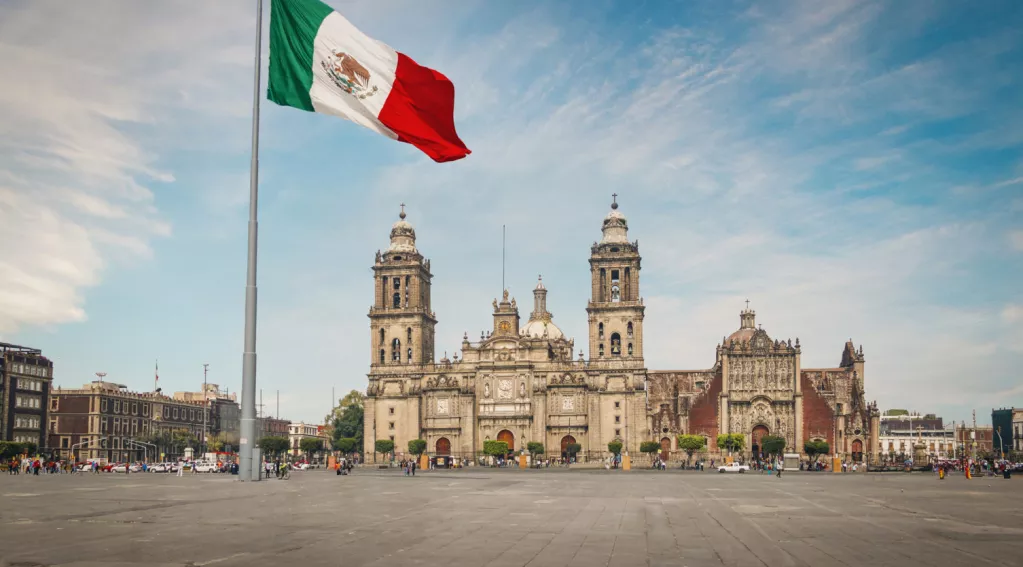Mexico’s Ambassador Calls For Resuming Mass Migration To The U.S.

During a November 17 virtual discussion, Mexico’s ambassador, Martha Barcena Coqui, told the pro-mass-migration National Immigration Forum (NIF) that immigration to the U.S. “has to be based on facts and realities,” which essentially means resuming mass migration, including temporary guestworker programs, and “keep[ing] open generosity towards refugees” in a post-COVID-19 world.
While recognizing that the coronavirus and resulting border closures and lockdowns have served to significantly tamp down mass migration, Mexico’s chief diplomat in the U.S. points out that the root causes (economic problems plus droughts) are still there and growing. As such, she argues, we need to find “the right avenues to process this migration, to have an orderly, safe, and regular migration [which] the global compact negotiated in the UN has as a goal.”
While this may at first sound relatively innocuous, it’s important to remember that Mrs. Barcena Coqui is using “diplomat speak,” to press her own political agenda. Moreover, her invocation of the United Nations’ Migration Compact should be cause for concern given the threat it poses to the rights of sovereign nations to control their borders and migration policies. (Note: Mexico is a signatory, but the U.S. is not.)
The Mexican ambassador also asserted that the UnitedStates needs to “overhaul” its immigration system, and, in particular, bring inmore “refugees,” because “people are waiting” (Madam Ambassador seems tobelieve that the Central American migrants attempting to stream into the U.S.via Mexico are “refugees,” rather than mainly economic migrants using asylum asa magic word to get into our country). She also criticized the U.S. and its“remain in Mexico” policy – the intent of which was to stem the border crisisand asylum abuse – as a case of “outsourcing” the problem to Mexico.Interestingly, however, she pushed back against the claims that Mexico is “toodangerous” a country for Central American or Caribbean (Cuban and Haitian)asylum applicants.
Perhaps most problematically, Mrs. Barcena Coquilectured Americans on how they should view immigration: “If you conceptualizemigration as a national security issue, if you [push for] securitization ofmigration, and what is even worse, if you criminalize migration, then yourapproach always [will] be policing, contentious [and] reduction of migration.So what we need is really to conceptualize migration … as an economic and social and politicalphenome[non].” And, she emphasized, we should view everything – from migrationthrough refugees to COVID-19 vaccines – from a “global perspective.”
In response, Rosemary Jenks, policy director at NumbersUSA, told Breitbart News that “the Mexican ambassador is going to tell us what is in the best interest of Mexico. But that doesn’t mean we have to do it — we have to do what’s in the best interest of the United States, of Americans, and legal immigrants.”
Mark Krikorian of the Center for Immigration Studies was even more blunt, stating that “with all due respect to Madam Ambassador, she should mind her own country’s business, not ours.”
While calling for the U.S. to reopen itself to mass migration, Mexico’s ambassador was essentially expressing the perspective of the country’s governing elites for decades (for more proof, see here, here, and here). Historian Victor Davis Hanson described it succinctly back in 2002:
“Mexico’s policy for a half-century has been thedeliberate and illegal export of millions of its poorest citizens to the UnitedStates, which is expected to educate, employ, and protect them in ways notpossible at home. Only that way has the chronically corrupt Mexican governmentavoided a revolution, as its exploited underclass (…) headed north, rather thanmarching en masse on Mexico City. Only that way can billions of earnedforeign currency be sent home to prop up a bankrupt economy; only that way forthe first time in his life can a poor Mixtec from Michoacan find an advocatefor his health and safety from the Mexican consulate—once he is safelyensconced far north of the border.”
Not much has changed since then – other than the Trump administration’s success in finally getting Mexico to stop allowing Central American migrant caravans to pass through unimpeded – and the same words might as well be applied to the attitudes of elites and governments in many other places – from Central America through Africa to the Middle East.
Of course, there is nothing wrong with a country’sambassador promoting what she believes is in her nation’s interest. That’s themain part of the job. But the question remains: is mass unchecked migrationreally in the best interest of people in Mexico, Central America, and manyother countries in the world? Or is it merely in the best interests ofpolitical elites in those countries to encourage their own citizens toemigrate, rather than to take care of their own people and make life in thosenations more desirable?

